Successful People Dare To Fail But Refuse To Be Defeated By Failure
Successful people dare to fail but refuse to be defeated by failure
(via aslam1)
More Posts from The-sleepy-chemist and Others
A scientific parody of Do you wanna build a snowman? from Disney’s Frozen. Lyrics by hyacynthus and myself. Vocals by me. A music video may be forthcoming.
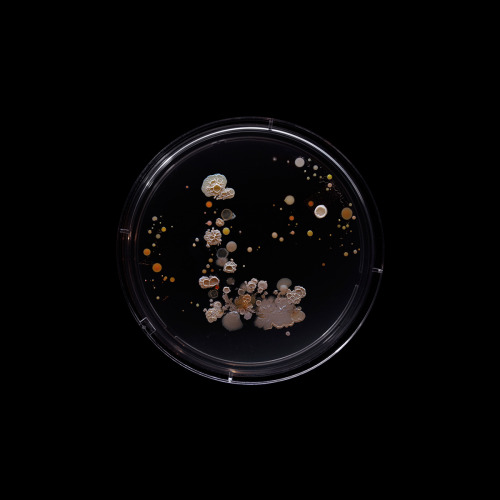
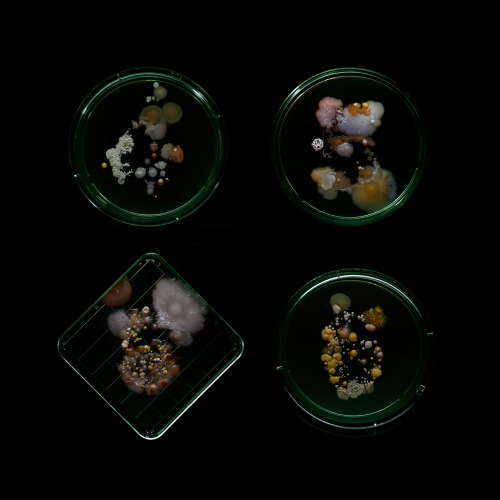
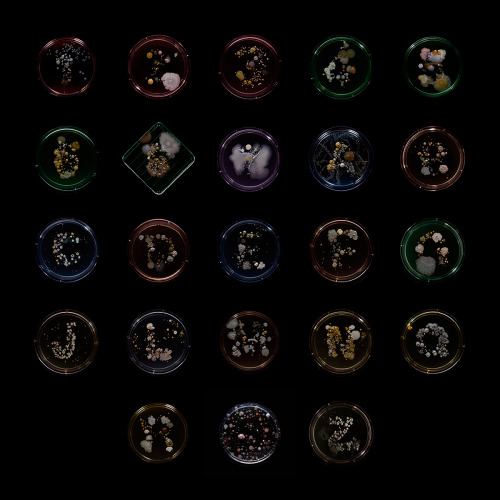
Subvisual Subway - Bacteria of the New York City subway- Craig Ward

Giant Centipede - Scolopendra subspinipes
Scolopendra subspinipes (Scolopendromorpha - Scolopendridae) is a really huge and fast growing centipede that can exceed 20 cm in length. They are voracious, strictly carnivores, and also poisonous, feeding mostly on small insects, spiders, earthworms, and other arthropods.
Scolopendra subspinipes is cosmopolitan in tropical and subtropical regions of the world, where these animals serve an ecologically important role as soil and leaf litter predators.
The sting of this centipede reportedly causes intense pain, burning, swelling, and erythema.
References: [1] - [2] - [3]
Photo credit: ©Melvyn Yeo | Locality: not indicated (2013)

Two years ago, a goddamn blue (yes, blue) dress got the world into a tiz over colour perception, and in November last year, it was a pair of blue and black (or are they white and gold?) Havaianas that divided families and friendships worldwide.
Now a Japanese psychologist has created another mind-warping colour illusion by swapping the red pixels for grey ones in a photo of a strawberry tart, demonstrating once again that our brains have the final say on colour.
Akiyoshi Kitaoka from Ritsumeikan University in Japan stirred up a storm recently by tweeting a filtered photo of a strawberry tart and announcing there were no red pixels in the picture, contrary to what it might look like.
Continue Reading.
Science never goes out of STYLE! And we prove it with this scientific a capella cover song!
Submitted by asapscience.
Submit some science here! :)

Maple syrup could help fight bacterial infections, Canadian scientists find
Maple syrup is once again making headlines for being the rockstar condiment that every Canadian knows it is, but it’s not the culinary world that’s buzzing this time — it’s the medical world. Newly released research from McGill University in Montreal suggests that concentrated maple syrup extract may actually help fight bacterial infections, potentially reducing the need for antibiotics around the world. “Combining maple syrup extract with common antibiotics could increase the microbes’ susceptibility, leading to lower antibiotic usage,” reads a press release issued by the university Friday. “Overuse of antibiotics fuels the emergence of drug-resistant bacteria, which has become a major public-health concern worldwide.”
Continue Reading.

Aurora - Nutirwik Creek, Brooks Range, Alaska | by Fred Wasmer

Corrugated Liomera - Liomera rugata
This ultra-pinkish crab (actually magenta) is scientifically named Liomera rugata (Decapoda - Xanthidae), a species which inhabits in coral reefs of the Red Sea, Tahiti, Hawaii, Philippines, China Sea, Japan, India and French Polynesia. It is also commonly known as Corrugated Crab due to the visible granules that cover the surface of carapace.
References: [1] - [2]
Photo credit: ©Todd Aki | Locality: Hilo, Hawaii (2014)
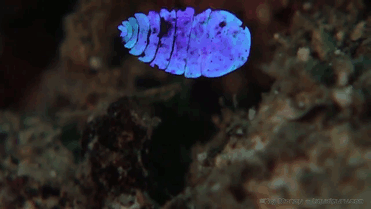
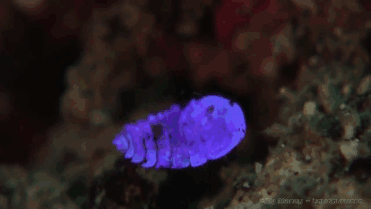
This is a Sea Sapphire! And when it doesn’t look amazing it’s invisible!
This is a type of crustacean called a copepod. It’s back is covered in guanine crystals. If it weren’t for these crystals the Sea Sapphire would be transparent, but these crystals are spaced in such a way that they strongly reflect certain colours of light. The colour of the light that’s reflected is dependent on the angle that it comes in.
Usually, it reflects blue light, but when the light hits the Sea Sapphire at 45 degrees, the reflected light shifts into the ultraviolet. And since we can’t see that it becomes invisible!




Next week I’ll give a presentation on the Researchers Night at Eötvös Loránd University, Hungary with the title: “Chemistry of light and the light of chemistry”.
During this presentation one of my favorite dyes will be also presented: Nile Red. However, just as usual, the 1000 USD/gram price was a bit over our budget, so I had to make it.
The raw product was contaminated with a few impurities, but a fast purification, by simple filtering the mixture through a short column helped a lot and ended up with a +95% pure product.
At first I concentrated the product from a dilute solution on the column as seen on the first pics. It’s interesting to see, that it has a different fluorescence in solution (faint orange fluorescent) and while it’s absorbed on the solid phase (pink, highly fluorescent).
After all the product was on the solid phase, I added another solvent and washed down the pure, HIGHLY FLUORESCENT product. Everything else, what was mainly products of side reactions, stuck at the top of the column as seen on the second pics and the gifs.
Also here is a video from the whole process in HD: https://youtu.be/W0Lk5jkd_B0
-
 munixf liked this · 5 years ago
munixf liked this · 5 years ago -
 fatenmeetstheworld reblogged this · 8 years ago
fatenmeetstheworld reblogged this · 8 years ago -
 paperfuneral reblogged this · 8 years ago
paperfuneral reblogged this · 8 years ago -
 habitnest reblogged this · 8 years ago
habitnest reblogged this · 8 years ago -
 llawstudies liked this · 8 years ago
llawstudies liked this · 8 years ago -
 habitnest liked this · 8 years ago
habitnest liked this · 8 years ago -
 kenyaga liked this · 8 years ago
kenyaga liked this · 8 years ago -
 mwnymell reblogged this · 8 years ago
mwnymell reblogged this · 8 years ago -
 mwnymell liked this · 8 years ago
mwnymell liked this · 8 years ago -
 stayywonderstruckk reblogged this · 8 years ago
stayywonderstruckk reblogged this · 8 years ago -
 self-esteem12 liked this · 8 years ago
self-esteem12 liked this · 8 years ago -
 aslam1 reblogged this · 9 years ago
aslam1 reblogged this · 9 years ago -
 upintheairwhereballoonspop reblogged this · 9 years ago
upintheairwhereballoonspop reblogged this · 9 years ago -
 positiv3-for5ever liked this · 9 years ago
positiv3-for5ever liked this · 9 years ago -
 queennegusx reblogged this · 9 years ago
queennegusx reblogged this · 9 years ago -
 wonderingboutthefuture reblogged this · 9 years ago
wonderingboutthefuture reblogged this · 9 years ago -
 dxtchbornlxndonraised liked this · 9 years ago
dxtchbornlxndonraised liked this · 9 years ago -
 nikacerise liked this · 9 years ago
nikacerise liked this · 9 years ago -
 kan3c0rtis reblogged this · 9 years ago
kan3c0rtis reblogged this · 9 years ago -
 vagabond-wearing-a-silver-mask reblogged this · 9 years ago
vagabond-wearing-a-silver-mask reblogged this · 9 years ago -
 biancabanica liked this · 9 years ago
biancabanica liked this · 9 years ago -
 mkaacb liked this · 9 years ago
mkaacb liked this · 9 years ago -
 onewaywallstreet reblogged this · 9 years ago
onewaywallstreet reblogged this · 9 years ago -
 onewaywallstreet liked this · 9 years ago
onewaywallstreet liked this · 9 years ago -
 luciasiobhandaly liked this · 9 years ago
luciasiobhandaly liked this · 9 years ago -
 bubu13 liked this · 9 years ago
bubu13 liked this · 9 years ago -
 aslam1 reblogged this · 9 years ago
aslam1 reblogged this · 9 years ago -
 wannabeeverythingyoueverdreamed reblogged this · 9 years ago
wannabeeverythingyoueverdreamed reblogged this · 9 years ago -
 wannabeeverythingyoueverdreamed liked this · 9 years ago
wannabeeverythingyoueverdreamed liked this · 9 years ago -
 verdeacru reblogged this · 9 years ago
verdeacru reblogged this · 9 years ago -
 verdeacru liked this · 9 years ago
verdeacru liked this · 9 years ago -
 walktowardyourintuition reblogged this · 9 years ago
walktowardyourintuition reblogged this · 9 years ago -
 ramblesofthechronicallytogether reblogged this · 10 years ago
ramblesofthechronicallytogether reblogged this · 10 years ago -
 jellybean4533 reblogged this · 10 years ago
jellybean4533 reblogged this · 10 years ago -
 aslam1 reblogged this · 10 years ago
aslam1 reblogged this · 10 years ago -
 evflo101 liked this · 10 years ago
evflo101 liked this · 10 years ago -
 jellybean4533 liked this · 10 years ago
jellybean4533 liked this · 10 years ago -
 tinylittlerambless reblogged this · 10 years ago
tinylittlerambless reblogged this · 10 years ago -
 ceetsui-blog liked this · 10 years ago
ceetsui-blog liked this · 10 years ago -
 carlosaviles95 reblogged this · 10 years ago
carlosaviles95 reblogged this · 10 years ago -
 crescentmay reblogged this · 10 years ago
crescentmay reblogged this · 10 years ago -
 groovycyn reblogged this · 10 years ago
groovycyn reblogged this · 10 years ago
60 posts